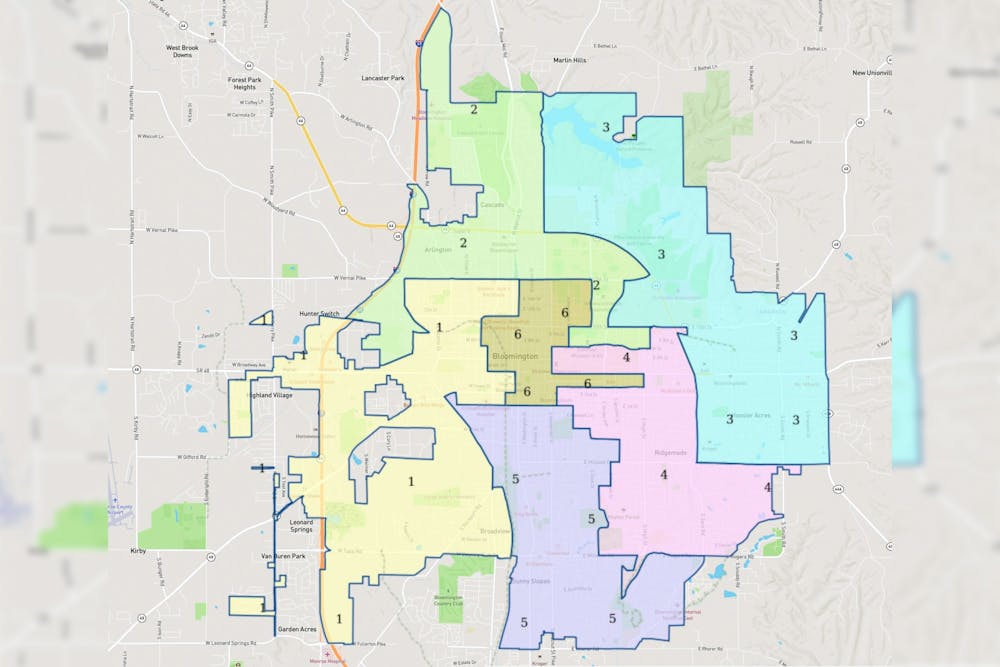When Bloomington redraws its city council districts in preparation for the 2023 municipal elections, it won’t be city councilmembers creating the map. It will instead be a group of nine Bloomington citizens serving on a politically balanced redistricting advisory commission.
The Bloomington City Council is currently accepting applications for the advisory commission.
Every 10 years, following the U.S. Census, Bloomington city council districts must be redrawn to consider any population growth or decline, according to Indiana state law.
“The state requires the city council to approve the final map,” Councilmember Steve Volan, who wrote the legislation to create the advisory commission, said. “It doesn’t mean that city council members should be deciding where the lines should be.”
The commission, which will meet publicly after its members are selected, will be made up of three democrats, three republicans and three members unaffiliated with a party, according to the ordinance.
One member of each of the three groups is required to be a full-time student at IU, guaranteeing students one-third of the positions on the commission.
“I consider this to be my greatest victory,” Volan said.
College Democrats at IU President Sam Waterman is applying to the commission. She said student representation is one of the most important elements of the commission’s formation. Waterman said that Bloomington’s long-time residents do not always represent student interests.
“It’s pretty evident if you’ve ever been to a city council meeting that townies do not want student voices heard,” she said. “They want to make it pretty much inconvenient for students to live in Bloomington.”
Students make up nearly half of Bloomington’s population, according to the ordinance. Currently, no IU undergraduate student sits on the Bloomington city council. However, IU students are counted as residents of Bloomington in the U.S. Census. The Census Bureau requirements ask those in the United States to fill out the census where they live the majority of the year, which, for college students, is usually the city in which their school is located.
Waterman said she fears students aren’t given adequate representation on Bloomington’s city council.
“Students are people too,” Waterman said. “Students live and work in Bloomington.”
Elizabeth Score, who worked on the campaign of now-GOP Congresswoman Victoria Spartz, said citizen participation is the best way to get the view of citizens.
“I think it’s incredibly critical that people get involved specifically in redistricting,” Score said. “When you draw a map, sections are supposed to be all about the interests of the people. In order to know the interests of the people, you have to spend a lot of time talking to people.”
Score said she agrees with Waterman that student representation on the commission is important and she thinks one-third representation is adequate.
“It would be frankly just silly to completely uninclude Bloomington students from the commission because we are a large part of this community,” she said.
Xavier Ramirez, who sits on the Indiana Citizens Redistricting Commission, said the ICRC was thrilled to see Bloomington was taking this step.
“This is exactly what we want to see at all local levels of government, but also in our state government,” Ramirez said.
Volan represents the 6th district, which includes much of IU’s campus. Students make up a significant portion of his constituency. He strongly encouraged Bloomington citizens, but specifically IU students, to apply to the commission and engage with their local government.
“Here’s the truth: if I did my job right, I will be replaced by a freshman,” Volan said. “My goal is to get myself elected out of office by an IU student.”




